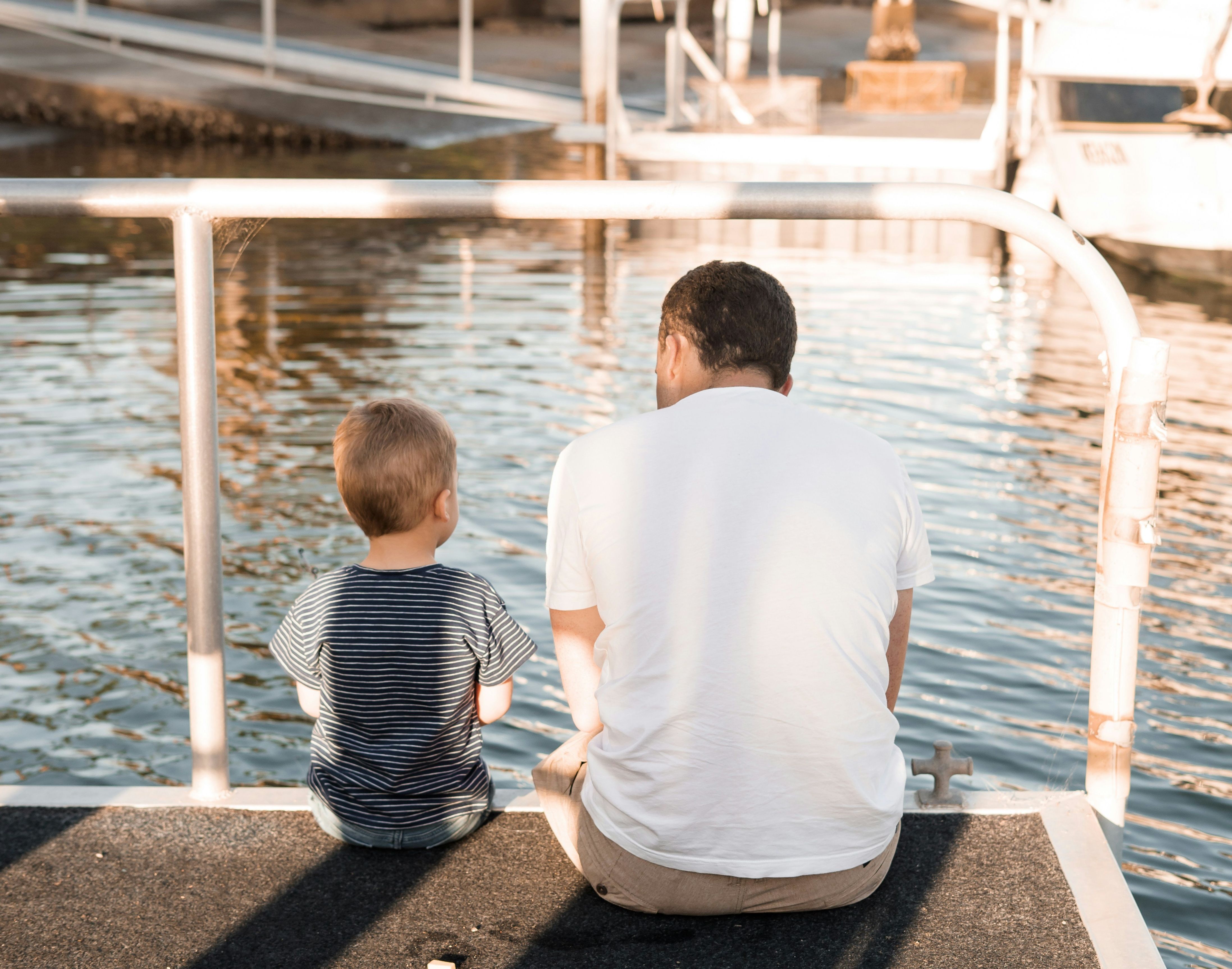Child psychologist reveals the 6 'magic phrases' that make kids listen to their parents
"When a child feels safe, they can actually hear you."

Moms share joyful moments with their kids.
Sometimes it's generational, and sometimes it's just a bit of good old-fashioned authority rebellion, but getting kids to really "listen" to their parents in a way that creates a positive long-term effect can be tricky.
That's where child psychologist Reem Raouda’s hours of research come in handy. In an article for CNBC's Make It, Raouda, also a mother and therapist, reveals that after studying "over 200 parent-child relationships," a common theme for a good outcome is for the child to feel connected and safe.
Raouda reveals six phrases she has personally seen make all the difference.
"I believe you."
Validation is a huge factor in parental relationships. She writes, "Belief defuses shame and creates safety. When a child feels safe, they can actually hear you."
She gives the example of spilling juice. If a child spills something, it's immediately reassuring for them to know their parent doesn't blame or shame them. And if the child says they didn't do it on purpose, saying "I believe you" helps establish respect.
Another example could be, "I just forgot to do my homework." A potential answer? "I believe you! We all forget sometimes. Better late than never."
"Let's figure this out together."
When a child is merely following orders from a parent, they don't often feel a teamwork bond. Raouda refers to it as a "standoff" when a chore is barked at a child, rather than presenting it as a task for the greater good.
If, for example, a kid is being asked to clean their room and seems oppositional to the idea, rather than punishing—come up with a fun plan to clean together.
"You can feel this. I'm right here."
The idea here is to make sure the child knows their emotions are completely valid. If they have a reaction to something that upsets them, don't merely tell them to toughen up. Instead, let them know it's safe to feel it and that their parent will stay right by their side.
Kristen Weir writes for the American Psychological Association that acknowledging feelings with your child early on can yield healthy benefits. "Caregivers can start talking about feelings when their children are still babies. Point out when book or movie characters feel sad, happy, angry, or worried."
"I'm listening. What's going on?"
For a kid to hear you, they need to feel heard. Raouda notes, "This simple shift of giving attention before demanding it dissolves resistance. When kids feel understood, they stop trying to push back."
She adds that trying to get to the root of their emotion or action is key. "Now you're uncovering the deeper hurt behind the anger, and that's the part you can address to help repair both the relationship and the behavior."
"I hear you. I'm on your side."
These words build a bond, which ultimately (hopefully) connects a parent to their child. Knowing they can begin from a place where they're not alone is a great start to a healthy relationship.
She gives the example of a child hating their homework. If the parent comes at this from a place of understanding and an "I've been there" tone, it really helps the child feel supported and understood.
"I've got you, no matter what."
Again, this phrase builds teamwork. Raouda writes, "Mistakes can trigger shame. But when kids hear this phrase, they learn that love isn't conditional on performance or perfection."
Weir also touched on the importance of connection, saying, "Studies show that children who have a secure, trusting relationship with their parents or caregivers have better emotion regulation as toddlers than those whose needs aren’t met by their caregivers. Being consistent and comforting will help you develop a secure attachment with your child."
Jaime Amor gives tips on getting kids to pay attnention. www.youtube.com, CosmicKidsYoga
There are other child experts with approaches to getting children to listen. On the Cosmic Kids Yoga YouTube page, children's yoga instructor and host Jaime Amor gives her own ideas, including some physical instructions.
"Get on eye level," she suggests when possible. She also stressed the importance of "active listening," in that you're giving them your whole attention. Not only does this help put them at ease, it demonstrates "what active listening looks like."
Additionally, Amor recommends asking "how" and "what" questions rather than "why?" While "why" can sound accusatory, "how" and "what" help them tell their story. She astutely notes that when conversing with kids, "Speak in shorter sentences and use language they understand."
Lastly, she notes to give the child choices. "Kids tend to listen and cooperate when they get a choice. It gives them a sense of control and autonomy so they feel respect. When kids feel respect, they'll work hard to reciprocate."

On Reddit, an OP asks "How to effectively make my child listen to me." (For context, they share they have children who are two and seven.) One commenter writes, "I've found with my 5-year-old, if I do the activity with him that helps. If it's folding clothes, I fold mine, and he folds his. When it comes to him doing things on his own, I define success and help him visualize it. 'I need your help. Can you please help me by putting the dishes away?'"
Another gives this practical advice: " From an early age when they start to be able to understand words, state the reason why you need them to do something. For example, don't just tell them to tidy up the Legos, tell them to tidy up so their blocks don't get vacuumed. 'You wouldn't want your Legos to go missing, would you?'"
And this commenter echoes what Raouda said in her piece: "Try giving them options instead of demands. 'Would you rather do this now or in 5 minutes. Would you rather put your pants on first or your shirt on first.' Kids are more likely to be cooperative if they feel like they have some control. Try phrasing things differently. Turn demands into questions like "can/will you do this please?" instead of just "do this.""

The thread weaving through all these suggestions is making sure the child feels heard, safe, respected, and supported. It's not you against them; you're a team and in you're in it together.






 A woman takes a dark shower.
A woman takes a dark shower.